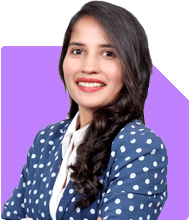Ramalingam Kalirajan |6199 Answers |Ask -Follow
Mutual Funds, Financial Planning Expert - Answered on Jul 19, 2024
He has an MBA in finance from the University of Madras and is a certified financial planner.
He is the director and chief financial planner at Holistic Investment, a Chennai-based firm that offers financial planning and wealth management advice.... more

Hi Team My before tax salary is roughly 5.6 lakh per month and I am hoping to get 3.75 in had (after tax and pf cut) I just took a car loan and planning to secure home loan which will cost me 1.25 lakh per month together. My monthly expenses are 1 lakh roughly That's leaves me another 1.5 lakh which I need to invest I am confused between keeping that in savings account for sbi max saver to pay lower intreste along Or Invest lakh into MF and rest 50 in max savings. Which option would be better and if I choose to go with MF options can you suggest few MF to balance my portfolio Thanks in advance
Evaluating Investment Options
You are considering whether to keep money in a savings account like SBI Max Saver or invest in mutual funds (MF). Let’s evaluate these options.
Savings Account (SBI Max Saver)
The SBI Max Saver account allows you to save on interest by offsetting your home loan balance with your savings.
Benefits: Reduces interest on home loan, offers liquidity, and safe.
Drawbacks: Lower returns compared to mutual funds.
Mutual Funds
Mutual funds offer the potential for higher returns through various investment options, but with higher risk compared to savings accounts.
Benefits: Higher returns, variety of options, and long-term growth.
Drawbacks: Market risk, not as liquid as savings account.
Suggested Investment Strategy
Hybrid Approach
A hybrid approach can balance the benefits of both options.
Invest Rs 1 lakh in Mutual Funds: For higher returns.
Keep Rs 50,000 in SBI Max Saver: For liquidity and interest offset.
Benefits of a Hybrid Approach
Risk Management: Diversifies risk between safe savings and higher-return investments.
Liquidity: Ensures you have liquid funds for emergencies.
Debt Reduction: Helps in reducing home loan interest through SBI Max Saver.
Choosing Mutual Funds
Actively Managed Funds
Actively managed funds can outperform the market with strategic decisions by professional fund managers.
Professional Management: Expert fund managers handle your investments.
Flexibility: Adapt to market changes effectively.
Suggested Allocation for Mutual Funds
Large-Cap Funds: For stability and steady returns.
Mid-Cap Funds: For growth potential.
Small-Cap Funds: For higher returns but with more risk.
Balanced Funds: For a mix of equity and debt.
Investment Allocation
Monthly Allocation
Allocate Rs 1 lakh across different mutual funds through SIPs (Systematic Investment Plans).
Large-Cap SIP: Rs 40,000
Mid-Cap SIP: Rs 30,000
Small-Cap SIP: Rs 20,000
Balanced SIP: Rs 10,000
Diversification
Diversify your investments to reduce risk and enhance returns.
Sectoral Diversification: Invest across various sectors.
Geographical Diversification: Consider international funds for global exposure.
Regular Monitoring and Review
Review your investment portfolio regularly to ensure it aligns with your goals. Make adjustments based on market conditions and personal financial changes.
Quarterly Reviews: Assess performance and adjust as needed.
Final Insights
Balancing your investments between SBI Max Saver and mutual funds can provide both liquidity and higher returns. Invest Rs 1 lakh in a diversified portfolio of mutual funds and keep Rs 50,000 in the SBI Max Saver account to reduce your home loan interest. Regularly review your investments to stay on track with your financial goals.
Best Regards,
K. Ramalingam, MBA, CFP,
Chief Financial Planner,
www.holisticinvestment.in
You may like to see similar questions and answers below
Nikunj Saraf |308 Answers |Ask -Follow
Mutual Funds Expert - Answered on May 23, 2023
Ramalingam Kalirajan |6199 Answers |Ask -Follow
Mutual Funds, Financial Planning Expert - Answered on Jul 27, 2024
Ramalingam Kalirajan |6199 Answers |Ask -Follow
Mutual Funds, Financial Planning Expert - Answered on Jul 17, 2024
Sushil Sukhwani |532 Answers |Ask -Follow
Study Abroad Expert - Answered on Sep 02, 2024
Shreya Shah |110 Answers |Ask -Follow
Nutritionist, Diabetes Educator - Answered on Sep 02, 2024
Shreya Shah |110 Answers |Ask -Follow
Nutritionist, Diabetes Educator - Answered on Sep 02, 2024
Shreya Shah |110 Answers |Ask -Follow
Nutritionist, Diabetes Educator - Answered on Sep 02, 2024
Shreya Shah |110 Answers |Ask -Follow
Nutritionist, Diabetes Educator - Answered on Sep 02, 2024
Shreya Shah |110 Answers |Ask -Follow
Nutritionist, Diabetes Educator - Answered on Sep 02, 2024
Sushil Sukhwani |532 Answers |Ask -Follow
Study Abroad Expert - Answered on Sep 02, 2024
Shalini Singh |121 Answers |Ask -Follow
Dating Coach - Answered on Sep 02, 2024
Anu Krishna |1145 Answers |Ask -Follow
Relationships Expert, Mind Coach - Answered on Sep 02, 2024
Dr Nagarajan J S K |111 Answers |Ask -Follow
Health Science and Pharmaceutical Careers Expert - Answered on Sep 02, 2024


























